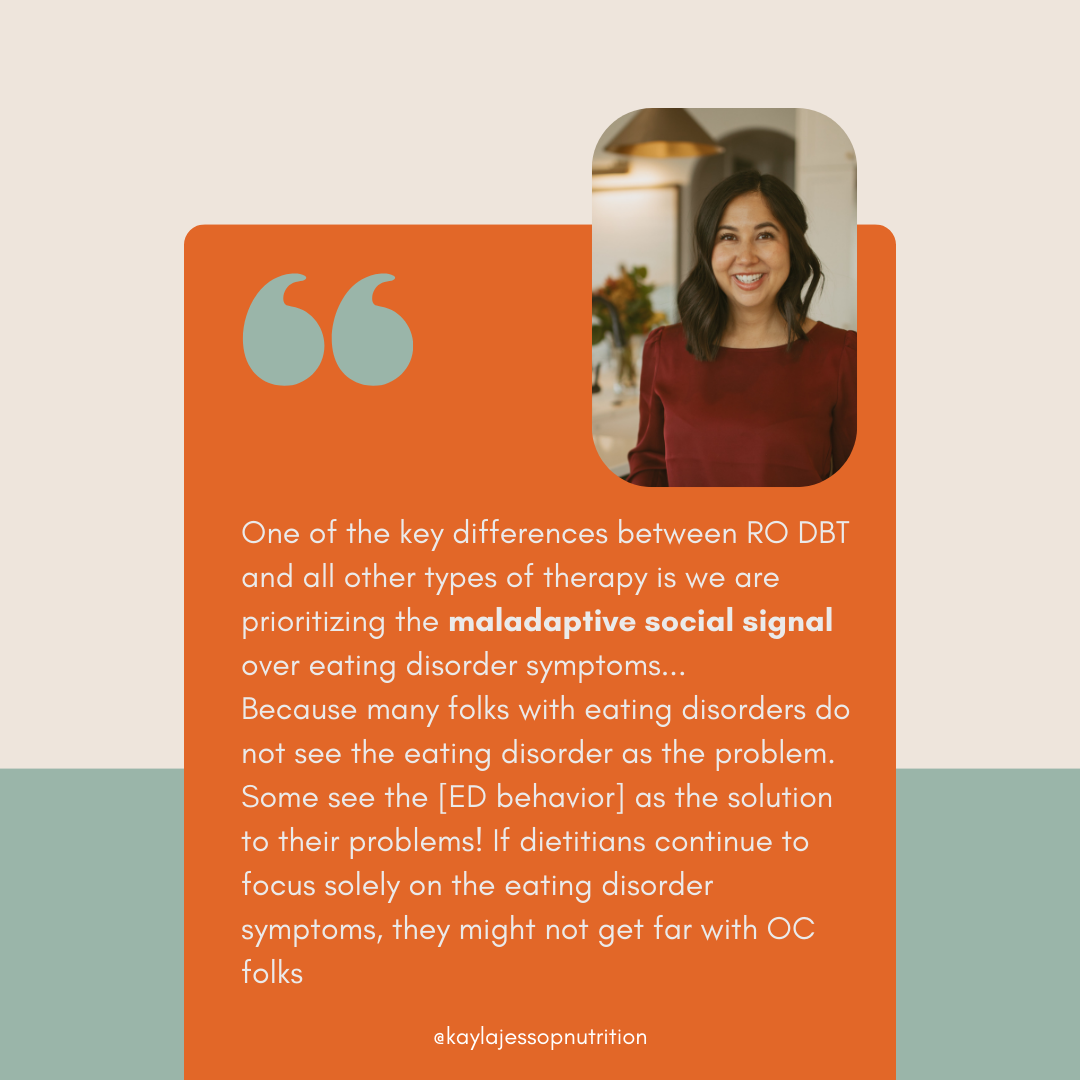Mindfulness…but a bit different
A large majority of the clients that come through our doors at KJNutrition have an ‘overcontrolled temperament’ where there is an excessive need for control that leads to poor interpersonal relationships and emotional expression.
So, why would this be something we hone in to as dietitians who work on relationship to food or body? Because many folks with eating disorders do not see the their poor relationship to food/body as the problem, instead they see their behaviors as a solution to their problem!
So, by focusing solely on the eating behavior itself, we can really only get so far.
Research shows that OC individuals struggle with rigid and rule governed behavior, and in nutrition counseling we see these behaviors come out around food/body as a way to emotionally regulate. i.e: eating the ‘right’ way, over planning meals/routines/workouts, compulsive fixing and coping (compensating with exercise, body checking etc)
When holding such strong convictions or beliefs that translate into these rigid behaviors, it keeps the individual from learning anything new—the unknown is a spooky, scary place to OC folks and sticking to their status quo (what feels good) maintains the peace in their brain. And let’s not forget how a malnourished brain is highly threat sensitive, so combined with an already biological OC temperament with an innate high threat sensitivity–even just tiptoeing out of their comfort zone is a hard sell.
(RO) prioritizes actively moving towards the things one wants to avoid/finds uncomfortable to even think about in order to learn from them–a bit different than most mindfulness practices that you may be used to working with (ie: mindful meditation, or labeling emotions to regulate in traditional DBT). The focus is external versus internal (increasing social signaling, openness and flexibility); emphasizing self discovery rather than impulse control (no seriously, control is the last thing we need to increase!)
We help our clients lean into situations, thoughts, emotions etc that create idiosyncratic (atypical) energy (like breaking a food rule, feeling bitter with comparison of bodies etc), looking inward as a way to learn more about themselves.
So, instead of labeling emotions as bad, good, or avoiding all together, we help our clients cultivate healthy self doubt, take responsibility for emotional responses, and be open to the possibility of change.


